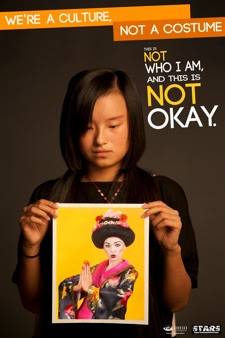Halloween is loved and loathed worldwide for exactly what it
has become: a celebration of freedom of expression, often in the face of
opposition. For one night, individuals disregard accepted behavior, governments
intervene (or don’t) as they see fit and everyone gets to share a bit of what
they really think. Below are five responses to Halloween from around the globe
that highlight underlying tensions that might otherwise go unspoken.
 |
| Saci Day meets Halloween [Source: R7] |
Brasil: In 2005, hoping
to mitigate the rise of Halloween, Brasil’s government made October 31 a
two-holiday occasion by adding Saci Day to the roster. Saci, the beloved
one-legged troublemaker from traditional Brazilian folklore, seems to have
worked his magic on the imported Halloween: check Twitter this weekend and we
predict you’ll see more than a mention or two of Dia do Saci.
Saudi Arabia: A 2009 report from the United States consulate,
made public by WikiLeaks,
revealed that the rules of conservatism don’t apply to KSA’s elite, especially
on Halloween: “Behind the façade of Wahabi conservatism in the streets, the
underground nightlife for Jeddah’s elite youth is thriving and throbbing. The
full range of worldly temptations and vices are available—alcohol, drugs,
sex—but strictly behind closed doors. This freedom to indulge carnal pursuits
is possible merely because the religious police keep their distance when
parties include the presence or patronage of a Saudi royal and his circle of
loyal attendants, such as a Halloween event attended by ConGenOffs on October
29…As one high society Saudi remarked, “The increased conservatism of our
society over these past years has only moved social interaction to the inside of
people’s homes.””
 |
| Halloween in the U.S. [Source: STARS] |
United States: In 2011, Ohio University’s Students Teaching About Racism in Society (STARS) launched ‘We’re a culture, not a costume’, a campaign to
challenge the cultural and ethnic stereotypes that have become normalized in
Halloween costumes. Sarah Williams, then-president of STARS, explained,
“The best way to get rid of stereotypes and racism is to have a discussion and
raise awareness.” The group has succeeded in initiating a national dialogue
that continues to this day.
Rwanda: In 2013, Minister of Sport and Culture Protais Mitali
banned celebrating Halloween in any capacity, public or private. Mitali argued
that Halloween undermined Rwandan culture and labeled the ban an act of
protectionism against Western influence. A Twitter debate ensued, as well as
articles in favor of and against Rwanda’s Halloween ban. Of note, Ugandan
writer Bwesigye bwa Mwesigire equated
Rwanda’s ban with using “a sledge hammer to swat a mosquito” and Akua Djane of
Ghana argued, “If Halloween came to Ghana from Nigeria for example, Ghanaians
would call it “juju”, evil, occult…But because Halloween came from “the
whites”, Ghanaians and other Africans have embraced it, no questions asked!
Poor Africa.”
Russia: In 2014, Georgy Fyodorov of Russia’s Public Chamber petitioned
Culture Minister Vladimir Medinsky for a nationwide Halloween ban:
“Unfortunately, since the 1990s, lifestyles and behaviors that are very
different from our cultural values are being actively thrust upon us. I believe
it is necessary to give an ideological assessment to this holiday and launch a
counteroffensive.” Medinsky dismissed the petition as a request beyond the
scope of his office. This year, Russia’s Arkhangelsk region has taken up
Fyodorov’s fight by banning Halloween celebrations in schools.
For many, October 31 is one night of freedom following 364
of conformity to social norms that antagonize their very nature. Once released,
this bottled expression frequently oversteps its boundaries and delves into the
otherwise forbidden fruits of carnal pleasure, stereotyping and worship of the
foreign other. Underneath, however, is a holiday whose global appeal is rooted
in a desire to be honest—to show people who we really are, who we want to be
and how we really think, sentiments that find themselves expressed most openly from
behind anonymity’s mask. Halloween brings out a version of ourselves that
perhaps isn’t our ‘best’ self, but also doubles as an opportunity to challenge
those beliefs that would otherwise remain within.
Halloween is yet another example of the ineffectiveness of
constraints on freedom of speech and freedom of expression. Restrict
what people can say and do and they’ll simply keep it in until they can hold it
no longer; what form it takes at that point is anyone’s guess.
Love it or hate it, participate or conscientiously object, recognize
that this October 31 is your opportunity for self-expression.
SumRando Cybersecurity is a South Africa-based VPN, Web Proxy and Secure Messenger provider. Surf secure and stay Rando!
SumRando Cybersecurity is a South Africa-based VPN, Web Proxy and Secure Messenger provider. Surf secure and stay Rando!



